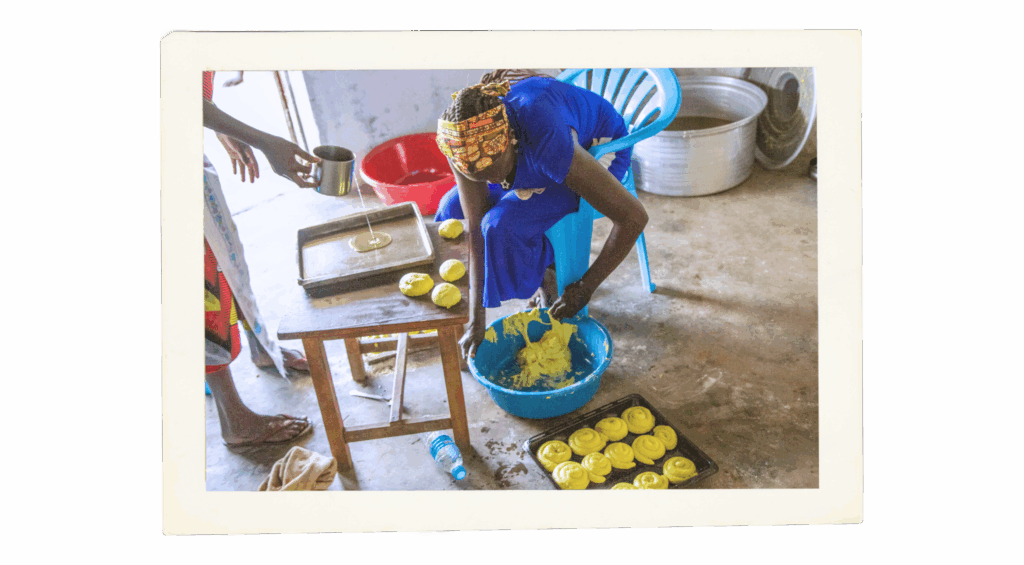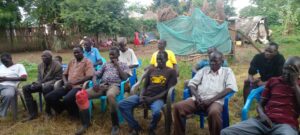This month, we’re excited to bring you insight from Mission ONE President, Olivia Mulerwa. In a recent conversation on the Inspired by Their Stories Podcast, Olivia reflected on her experiences leading the organization in partnering with local leaders and communities across Africa, Asia, and the Middle East.
This podcast is created by the Pulte Family Charitable Foundation. We’re beyond grateful for faithful supporters like the Pulte Foundation who allow us to see Kingdom impact come to life around the world.
Here are a few highlights Olivia shared during her conversation with James Conner, Chief Grants Officer at Pulte. To hear the full discussion on YouTube, click here.
How does Mission ONE define community transformation?
Olivia: I think what’s beautiful about Mission ONE is that we don’t define it. We listen to the local leaders to hear what their definition is.
So you’ll find if you look at our projects, they take many different forms because the needs are different. A community in rural Nepal has different needs than a community in South Sudan. Maybe one community needs clean water and the other the need is a school. So for us, as long as it’s something that comes from the community and points back to the gospel – we want to be the hands and feet of Jesus. We want to be the salt and light in the world. We want to help the poor, love justly, act mercifully. So if it’s pointing back to that, we want to explore it. And then we go on that journey of discovery with the leaders of the community. What could that look like and what’s both of our roles in that?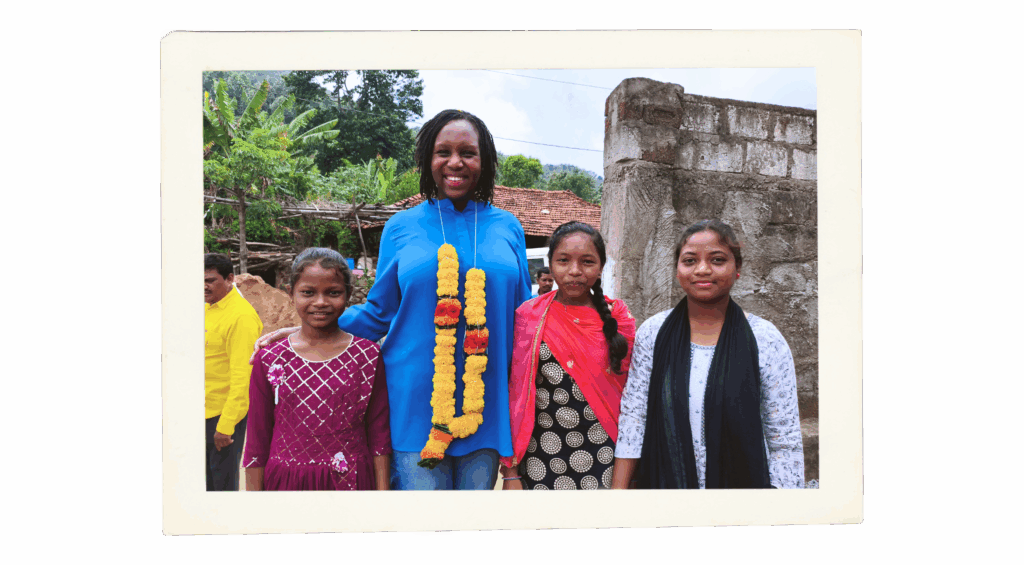
What does the push and pull of partnership look like when the work is taking shape?
Olivia: We intentionally take time on the front end to build relationships of trust so that when things get complicated or complex, as they will, you have that reservoir of trust that allows you to think the best of each other, that allows you to navigate changes together.
The heart of everything we do is relationship. If you’ve been in the nonprofit development space for a while, you know that a lot of times relationships are very project based. So you come together for a specific purpose to accomplish something and then it’s done. We don’t do that. Of course, we have project frameworks for the sake of measuring impact, but the relationships that we form are for life because we believe that the work of community transformation is lifelong work. We’re not going to solve poverty in a month of even four years. We’re just going to keep working at it over time.
When considering what success looks like to you, or even collecting data to make sure a project is successful, can you talk about some of the challenges you’ve experienced and how they’re addressed through the work you’re doing with Mission ONE?
Olivia: We love to measure what we’re doing. We want to know that we’re being effective. For us, everything comes back to relationship. So, one of things we do intentionally is we are in contact with our local teams weekly. We’re getting weekly updates, not just updates three or four months down the line, because we want to keep our finger on the pulse of what’s really going on. And then we travel as often as we can, at least once a year, sometimes twice. Different members of the team visit projects to see firsthand what’s happening and to hear from the people on the ground. Hearing the stories of impact from people on the ground helps us know the impact we’re making over time. And because we’re in these relationships long-term, we’re able to measure those long-term achievements.
…I always love to talk about challenges because it just shows that we have all the best intentions and we have our vision and our programs and things we want to accomplish. But every so often we are reminded that everything we’re doing sits within this broader social, economic, political context that we have no control over. That’s one of the biggest challenges that comes with being this small grassroots movement. I’ll give an example. One of the countries where we work is South Sudan. And South Sudan has been in some state of civil war and political unrest for as long as we can remember. So we had this great idea to start a bakery project that would give jobs to women in the community and they would sell bread and make an income to support the local ministry there. We launched the project and the women were taught how to bake. And right around that time, a new conflict started. And then six months later, most of the people there had not been paid by their work and were unable to earn wages. So the whole thing essentially fell apart as it was originally conceived.
However, the beautiful thing that came of that is the women who were trained formed a fellowship group and continued to meet with each other and encourage one another. And they still knew how to bake. So, they couldn’t sell what they were baking at the time because of the state of the market, but they were able to bake bread for their families and their kids. I love to talk about this project because it was a challenge. It didn’t go exactly as we planned. But one of the things I love about ministry or really doing things in the name of Jesus is that God uses everything for good. So I would have liked to have a successful bakery in a financial sense. But we didn’t have that. However, this project is such a blessing to those women and that community.
Can you share a story with us about some of your recent travels?
Olivia: This summer, I traveled all over visiting with different partners, projects, and teams. I remember taking three planes and then a long road trip, two hours of which was on a super bumpy road, then eventually getting to this really remote village in Pokot, Kenya where the All Girls School is. I don’t consider myself a very emotional person. So I was surprised when our van was pulling up, before we even got to the school, I had goosebumps because the girls were lining up to receive us. I started wailing before we even got out and spoke to them. I was just so moved because when I look at those girls, I see myself because I could have been any one of them. It’s just so moving to me to be able to serve them and contribute in some way.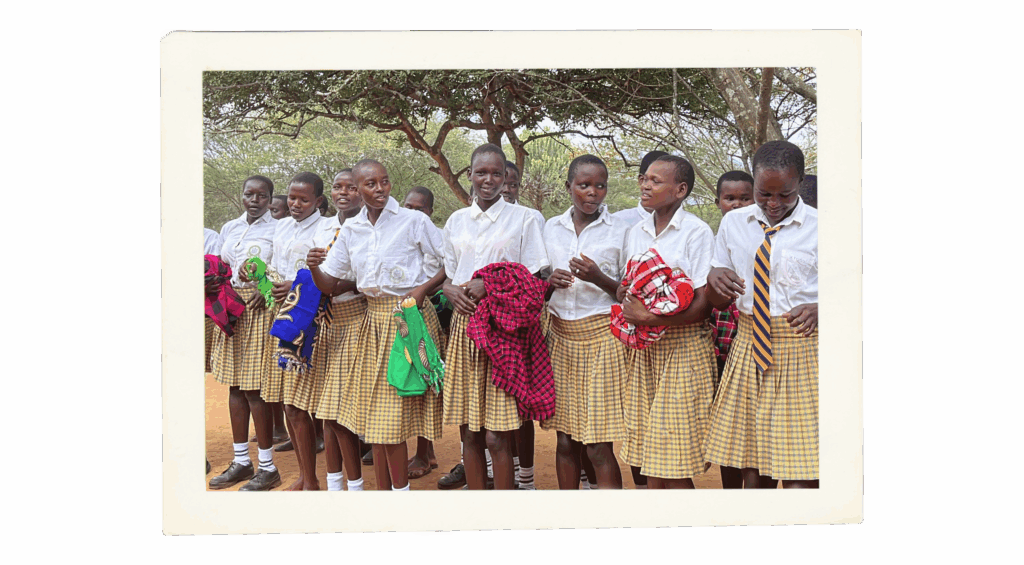
To see the exact moment Olivia mentions here, visit this link.
Mission ONE has been around for 34 years. I’d love to hear where Mission ONE has been and where you’re going next.
Olivia: It’s so exciting to be in leadership and stewarding this great legacy that predates me. I always say to our founder that I have so much respect for him and his contribution because I haven’t done anything for 34 years. My oldest child is eight and I’ve been married 10 years. That’s my longest commitment. So I have so much respect for the history that’s there and I bring that to the leadership and the vision for the future.
Over the last 34 years, Mission ONE had has had the opportunity to particpate in planting over 8,000 churches where there were none. We’ve seen over 350,000 people become followers of Jesus and find hope in the gospel. We have done numerous projects that serve communities in different ways. And I’m in reverence of all of that. I want to make sure that whatever we are doing in the future is not taking away from that. But we also have 34 years of information, 34 years of doing things well, and 34 years of failing in some things and learning. So one of the core values that we have is learning. We want to make sure that we’re constantly learning from who we were and what we’ve done, and learning how to do things better.
Olivia’s reflections offer a glimpse into the heart of Mission ONE’s work. Her experiences remind us that Kingdom transformation isn’t just about programs or statistics, but instead it’s about real people stepping out in faith, being obedient to God’s calling, and serving the greatest needs of communities for the sake of the Kingdom. Each insight she shared highlights the power of hope, perseverance, and partnership.
Watch the full conversation on YouTube to hear more!
Search the Blog
Free Resource
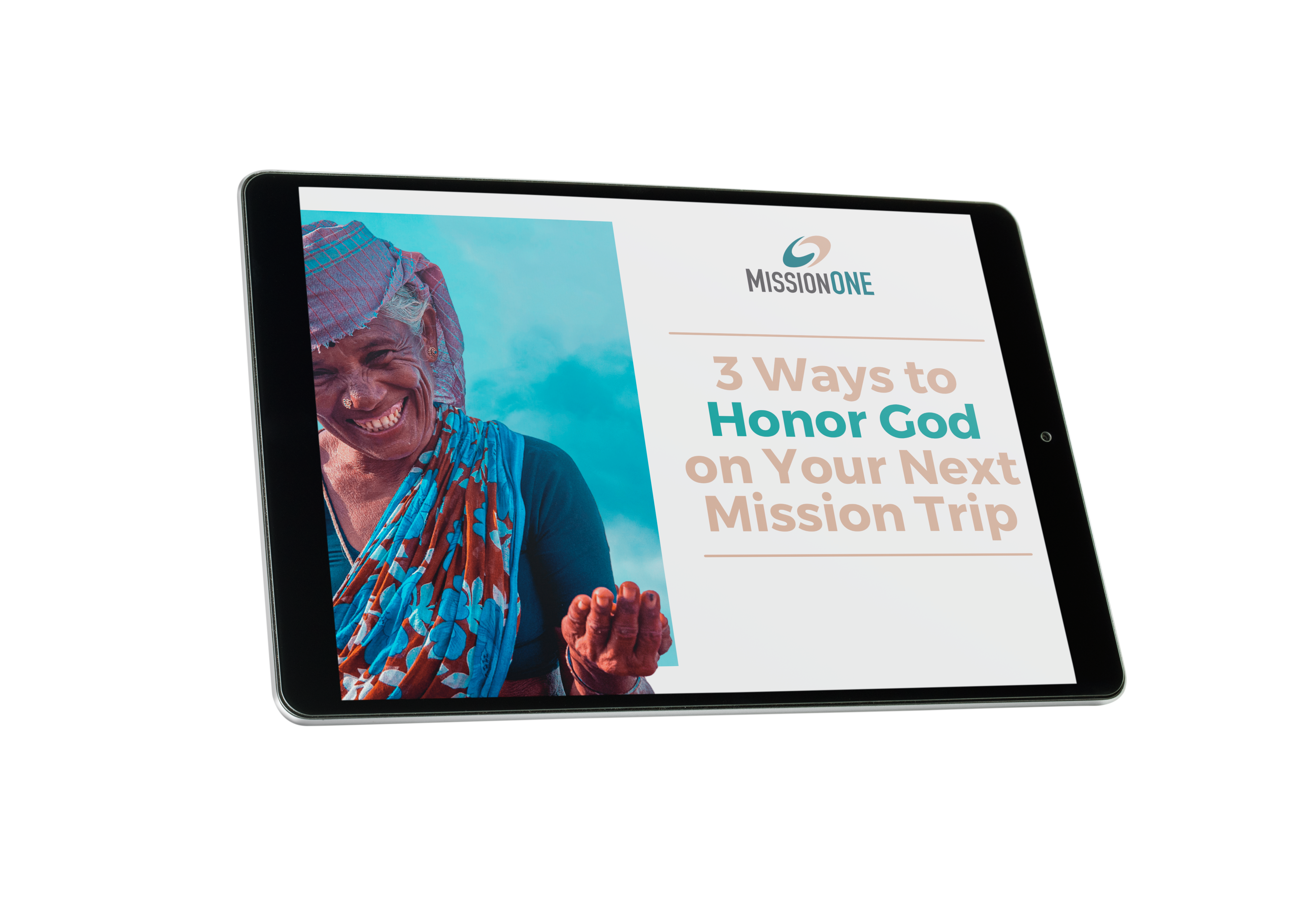
3 Ways to Honor God on Your Next Mission Trip
We're sharing three things you should consider before you organize or participate in an international mission trip, seek to do work in the multicultural neighborhood in your own city, or embark on any cross-cultural partnership.

